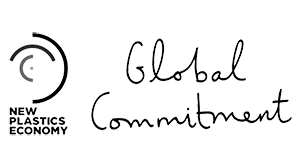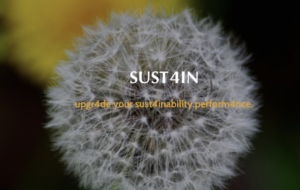The response to Covid-19 must be bold, green and social
The recovery response to the Covid-19 pandemic is an unintended opportunity to shift the world to a greener economy, but the social emergency and future social demands cannot be ignored, argues Marcio Viegas.
Social issues can disrupt and stop even very green projects. Back in 2004, ahead of COP10, I gave the example of Clean Development Mechanism (CDM) projects: illegal waste dumps transformed into well managed and “green” landfills, had been stopped because waste diggers suddenly found that their main source of income had been literally fenced.
“In the initial rush to clean the air, we are forgetting the bigger sustainability picture1 I concluded. CDM projects, for other reasons, later grew and then floundered.
A decade later, in 2015, ahead of the Sustainable Development Goals (SDGs), the Paris Agreement and a fresh wave of populism, I made a similar point for green bonds: “Green bonds should not focus on just one environmental factor, but should take broader environmental, social and governance considerations into account.”2
The social aspects were partially corrected by new versions of the Green Bond Principles and green bonds have not stopped growing.
Genuine social demands can also degenerate into populism and delay or halt green policies, as happened with virtually all policies to rightly end fossil fuel subsidies, from Brazil, with the election of Bolsonaro with the support of striking truck drivers, or in France, with its gilets jaunes movement.
Despite those admonitions, social issues, including opportunities, remain underrepresented in sustainable finance. There are fewer social bonds – despite the recent growth – than green bonds, for instance. And it continues: the recent EU Sustainable Finance reports, for example, epitomize a great work around climate adaptation and mitigation, but, for lack of time and resources, they do not cover other environmental and no social issues. Worse, it had a bad “social” start with a quitedefensive Do No Significant Harm list of safeguards and, more importantly, it does not consider the social benefits of green projects, such as jobs creation, and only does so tangentially for forestry.
Enter Covid-19
Except for Bill Gates or the always-scaring epidemiologists, nobody seriously considered a tragedy like Covid-19, much less in finance: the ones who did, such as the World Bank with its pandemic bonds, were off the mark. Even after Covid-19 was eventually and officially declared a pandemic by the World Health Organization, the famous bonds were not quickly triggered.
“The design of them by the private sector is flawed, by default and design, benefiting the private sector rather than protecting people who are suffering a pandemic,” said Clare Wenham, assistant professor in global health policy at the London School of Economics to the Financial Times.3
Covid-19 is a human and economic calamity, but the initial environmental consequences of the virus and the lockdowns have often been positive, such as lower emissions, but the increased attention being paid to science and an unintended global “climate crisis drill” at a scale nobody could ever have dreamed of. The other benefit is that denialists started look dumb in a matter of days, not decades.
From a broader sustainability perspective, Covid-19 is also a catastrophic reminder that social issues can, and apologies for being repetitive, stop and delay environmental policies, investments and projects. The EU Commission for instance is delaying part of its Green Deal initiatives.4
At the same time, we are all learning about a new “social” order and potential investment prospects, beyond the novel – and smart – coronabonds or other related opportunities. For instance, investments in: employees, products and services to facilitate homeworking and homeschooling, business resilience, or critical low-skilled jobs. Or catastrophe bonds for social disasters!
A sustainable finance rebalance
It is clear that sustainable finance needs to rebalance “social” in the ESG equation. Otherwise it is not going to be truly sustainable (even if sustainable investments are already proving to be more resilient).
Social issues are naturally harder to measure and predict. But we should be more modest about “knowing the unknowns”, go beyond not harming people and indeed look for opportunities, jobs in a ‘just transition’ and keep the focus on the SDGs.
“It is clear that sustainable finance needs to rebalance ‘social’ in the ESG equation”
This is especially important now that economic stimulus packages are being framed. In order to avoid more social unrest and potentially more populists in power, the recovery needs to be urgent, ambitious, green and just: sectors such as oil and gas and aviation are going bankrupt, but a “brown” taboo for some.
Most economists tell us that in any recession jobs should be saved first and foremost. In this crisis jobs need also to be moved and created in more sustainable sectors. A green and social recovery, will be a sustainable recovery: public and private finance need to consider all key variables and help with this equation.
Originally published on Environmental Finance on 29 April 2020: https://www.environmental-finance.com/content/analysis/the-response-to-covid-19-must-be-bold-green-and-social.html

We are a network of expert professionals on sustainability.
SUST4IN apoya:








